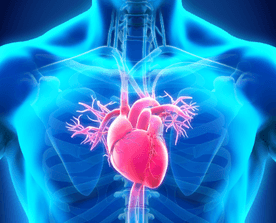
ESH 2023 guidelines – What’s new? 6 Highlighted topics
Let’s see what’s new in this 2023 Guidelines in 6 summarized points:
-
Non-Pharmacological Interventions: The guidelines highlight the importance of non-pharmacological interventions as a first-line treatment strategy. Lifestyle modifications, including adopting a healthy diet, increasing physical activity, and reducing alcohol and sodium intake, are strongly recommended
-
Pharmacological Treatment: When lifestyle changes alone are insufficient to control blood pressure, the guidelines outline appropriate pharmacological treatments.
a. Single pill combination: “The use of Single pill combination (SPCs) should be preferred at any treatment step, i.e. during initiation of therapy with a two-drug combination and at any other step of treatment. “
b. Triples therapies: “If BP is not controlled with the initial two-drug combination by using the maximum recommended and tolerated dose of the respective components, it is recommended to extend treatment according to the recommendations for resistant hypertension”.
c. ACEi : “ACEis have been shown to be associated with major benefits”
-
Management in Specific Populations: The guidelines address the management of hypertension in specific population depending on the type of the patient and his comorbidities.
-
Monitoring and Follow-Up: Regular monitoring and follow-up are essential in hypertension management, with guidelines emphasizing on frequent monitoring and the importance of patients in self-management.
-
Hypertension and Renal Disease: As hypertension is closely linked to renal function, the guidelines provide recommendations for managing hypertension in patients with renal disease.
-
Adherence: the guidelines shows that adherence to treatment is strongly influenced by the number of pills and it’s a very important point because “poor adherence has been associated with increased risk of developing CV complications “.
Based on this consideration the most effective evidence-based treatment strategy to improve BP control should:
-
Encourage combination treatment, especially for lower BP targets
-
Promote simplified SPC in long term adherence therapies
-
Recommend initial combination treatment for most hypertensive patient, as it improves adherence, provides better BP control, and reduces adverse outcomes.
In conclusion, the 2023 ESH Guidelines for the Management of Arterial Hypertension provide comprehensive and up-to-date recommendations for the diagnosis and treatment of hypertension, with a focus on individualized patient care and improved cardiovascular outcomes.
If you want to learn more you can refer directly to the complete guidelines: 2023 ESH Guidelines for the management of arterial hypertension The Task Force for the management of arterial hypertension of the European Society of Hypertension Endorsed by the European Renal Association (ERA) and the International Society of Hypertension (ISH) - PubMed (nih.gov)
SPC: Single pill combination, BP: Blood pressure, ACEi: Angiotensin converting enzyme inhibitors, BP: Blood Pressure, CV: Cardiovascular, ESH:European Society of Hypertension,
SCAC 07/23 DM 442 SERVIER - For the exclusive use of the health care professional

Keep up to date with our content
Subscribe to our newsletter so that you are always up to date with the news.



